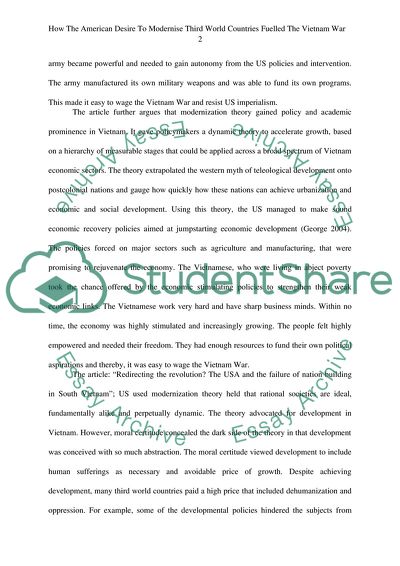Cite this document
(“American desire to modernise third world countries fuelled the Vietnam Research Paper”, n.d.)
Retrieved from https://studentshare.org/social-science/1685420-american-desire-to-modernise-third-world-countries-fuelled-the-vietnam-war
Retrieved from https://studentshare.org/social-science/1685420-american-desire-to-modernise-third-world-countries-fuelled-the-vietnam-war
(American Desire to Modernise Third World Countries Fuelled the Vietnam Research Paper)
https://studentshare.org/social-science/1685420-american-desire-to-modernise-third-world-countries-fuelled-the-vietnam-war.
https://studentshare.org/social-science/1685420-american-desire-to-modernise-third-world-countries-fuelled-the-vietnam-war.
“American Desire to Modernise Third World Countries Fuelled the Vietnam Research Paper”, n.d. https://studentshare.org/social-science/1685420-american-desire-to-modernise-third-world-countries-fuelled-the-vietnam-war.


